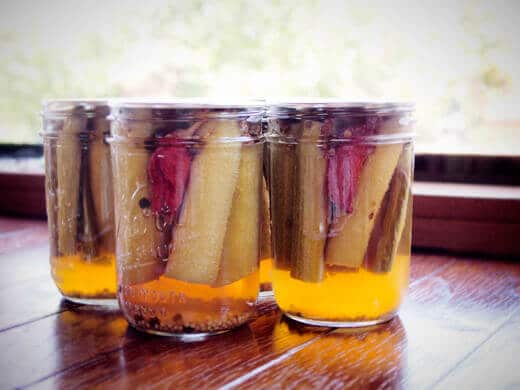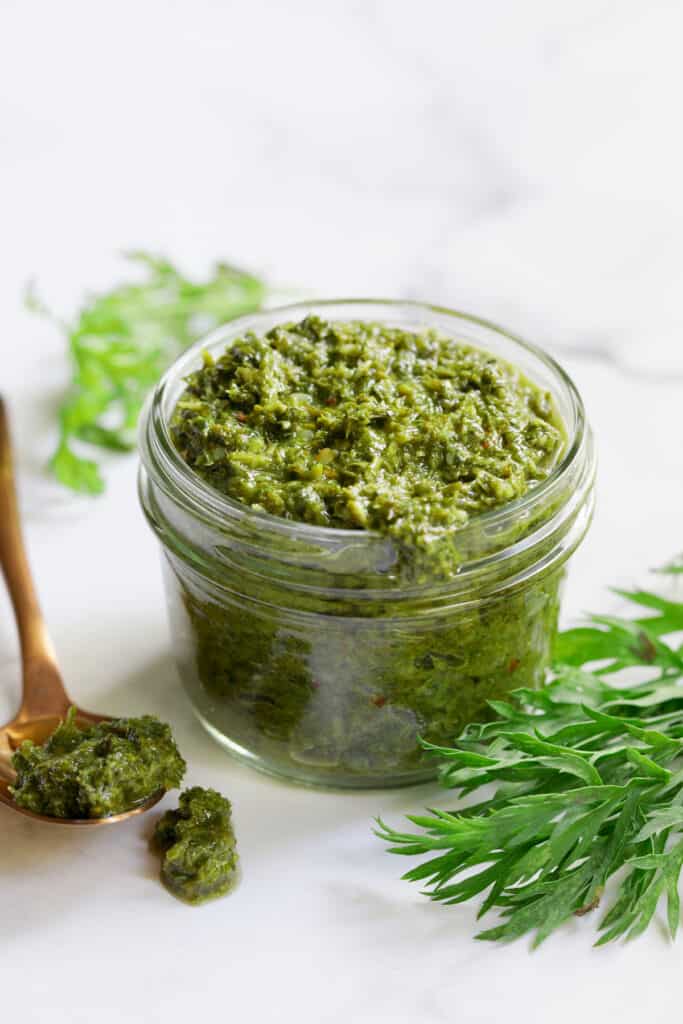Store-bought herbs often fall victim to spoilage, losing their vibrant flavor and rich nutrients. But what if you could capture that fresh taste right from your garden or supermarket and enjoy it all year round? Freezing herbs is the secret to infusing your dishes with the essence of summer, even in the depths of winter.
Discover all the best ways to freeze fresh parsley, cilantro, chives, and more, keeping them close at hand for your culinary creations. With the right techniques, you can avoid common pitfalls and ensure your herbs stay as fresh as the day you picked them.
Why We Love to Freeze Fresh Herbs
Freezing herbs holds a special appeal for many home cooks and gardeners. It stands as a simple solution to extend the life of herbs, locking in flavor and nutrients. Unlike drying, freezing preserves the herbs’ essential oils, ensuring that their taste remains robust and their aroma stays potent.
Moreover, having a stash of frozen herbs means you can enjoy the taste of fresh herbs anytime, without the need to rush to the store. It’s not only about convenience but also about reducing waste and making the most of your herb garden throughout the year.
Whether you are a novice cook or a seasoned chef, frozen herbs can elevate your dishes, providing that burst of freshness that is often lost with store-bought, dried alternatives.
What Are the Best Methods to Freeze Fresh Herbs?
Freezing fresh herbs for winter storage is an art that can be mastered with a few best practices. The methods range from simple to slightly more involved, but all ensure that your herbs will be ready for your next recipe.
- Freezing in oil or water in ice cube trays
- Packing chopped herbs in freezer bags
- Preparing herb pastes or pesto for compact storage
Each approach has its merits, and the best practice often depends on how you plan to use the herbs after they’ve been frozen.
How to Freeze Fresh Parsley, Cilantro, and Chives?
To freeze herbs like parsley, cilantro, and chives effectively, start by washing and thoroughly drying them. You can chop them finely or leave them in larger sprigs, depending on your preference. For herbs like cilantro and parsley, removing the tougher stems is recommended, as they can become woody when frozen.
Packing these herbs into ice cube trays, with water or olive oil, is a popular technique. Once frozen, you can transfer the cubes into a freezer bag for easy access and portion control. Alternatively, you can lay the herbs flat in a single layer on a baking sheet to freeze before placing them into storage bags.
Storing them properly is key. Make sure to push all the air out of freezer bags to prevent freezer burn and label each bag with the herb’s name and the date of freezing.
How to Make Herb Bombs for Freezing?
Herb bombs are a fantastic way to preserve your home garden herbs. They involve placing chopped herbs in ice cube trays and covering them with oil or melted butter. This method is particularly good for herbs like basil and oregano, which are often used in sautés and sauces.
Once the cubes are solid, pop them out and store them in a freezer-safe container. These herb bombs add instant flavor to dishes as they melt, making your cooking process both convenient and flavorful.
Remember to use herbs that pair well with oil or butter, and consider blending herbs together to create your own signature mix.
What Ingredients Do You Need to Freeze Fresh Herbs?
Freezing herbs is a simple process that doesn’t require many ingredients. Aside from the herbs themselves, you may need:
- Water or olive oil, for ice cube preservation
- Butter, if making herb bombs
- Freezer bags or airtight containers for storage
Ensure that all containers or bags are suitable for freezer use to maintain the quality and freshness of your herbs.
How Long Can You Store Frozen Herbs?
Frozen herbs can generally be stored for up to six months. However, for the best flavor and aroma, it’s advisable to use them within the first three months. After this period, the herbs can start to lose their potency and may develop freezer burn if not stored correctly.
Regularly check your frozen herbs for ice crystals or any signs of freezer burn, and always ensure the container is sealed properly after each use.
What Are the Common Mistakes When Freezing Herbs?
One common mistake is failing to dry herbs completely before freezing, which can lead to ice buildup and freezer burn. Additionally, overfilling containers or bags can cause herbs to clump together, making it difficult to use just the amount you need.
Avoid mixing different herbs in the same container unless you plan to use them together in a recipe. This ensures that each herb’s unique flavor is preserved.
Frequently Asked Questions About Freezing Fresh Herbs
How to Freeze Fresh Cilantro and Parsley?
For cilantro and parsley, the key is to wash and thoroughly dry the herbs before chopping and placing them in freezer bags or ice cube trays with water or oil. This method preserves their delicate flavors and makes them easy to use in future meals.
What Is the Best Method to Freeze Fresh Herbs?
The best method to freeze herbs often depends on how you intend to use them. However, freezing chopped herbs in ice cube trays with water or oil is universally acknowledged as highly effective, as it maintains their freshness and makes them convenient to use later on.
Can You Freeze Fresh Parsley and Chives?
Yes, you can freeze fresh parsley and chives. Both herbs freeze well when chopped and stored in freezer bags or ice cube trays. The key is ensuring they are completely dry before freezing to prevent ice crystals from forming.
Is It Better to Freeze Cilantro in Water or Olive Oil?
Whether to freeze cilantro in water or olive oil depends on your cooking preferences. Water is great for preserving the herb’s original state, while olive oil can be advantageous if you plan to cook with the cilantro, as it provides an added flavor dimension.
As we’ve explored the various ways to preserve your herbs for later use, let’s take a moment to learn from a visual guide. Here’s a helpful video on freezing herbs techniques.
Remember, using fresh herbs can elevate your cooking to new heights, and by freezing them effectively, you can ensure a year-round supply of these flavorful additions. With the right approach, you can enjoy the convenience and taste of all the best ways to freeze fresh parsley, cilantro, chives, and other herbs right from the comfort of your home.






This post is a total game-changer for anyone who loves cooking with fresh herbs but hates how quickly they go bad. I never realized how easy it was to freeze them and keep that fresh burst of flavor all year round. The tips on using ice cube trays with oil or water are super practical and I love the idea of making herb bombs! Can’t wait to try this with my garden herbs and cut down on waste. Thanks for sharing these awesome tips!